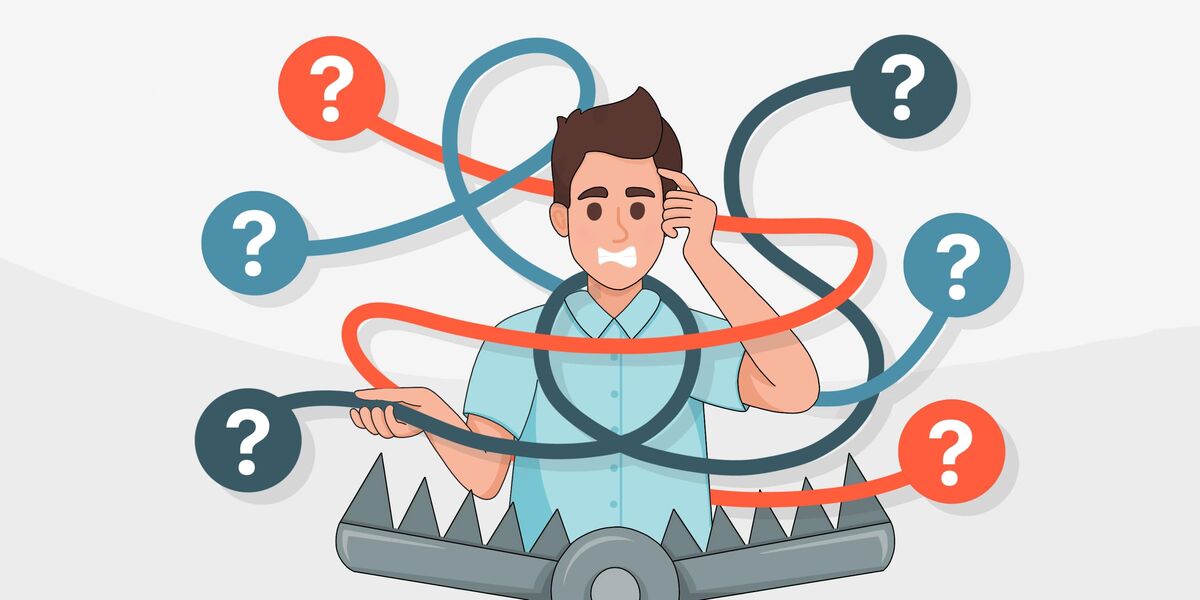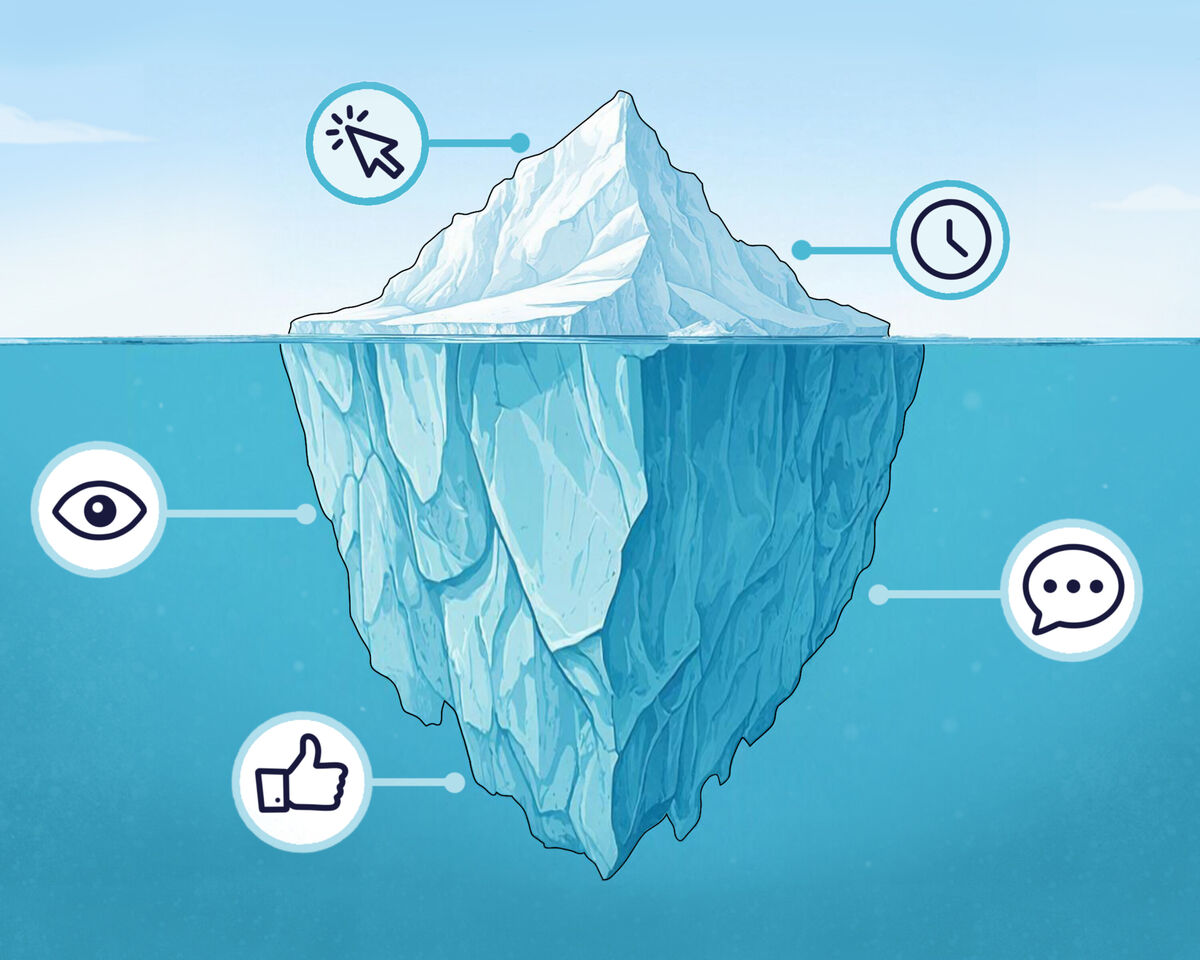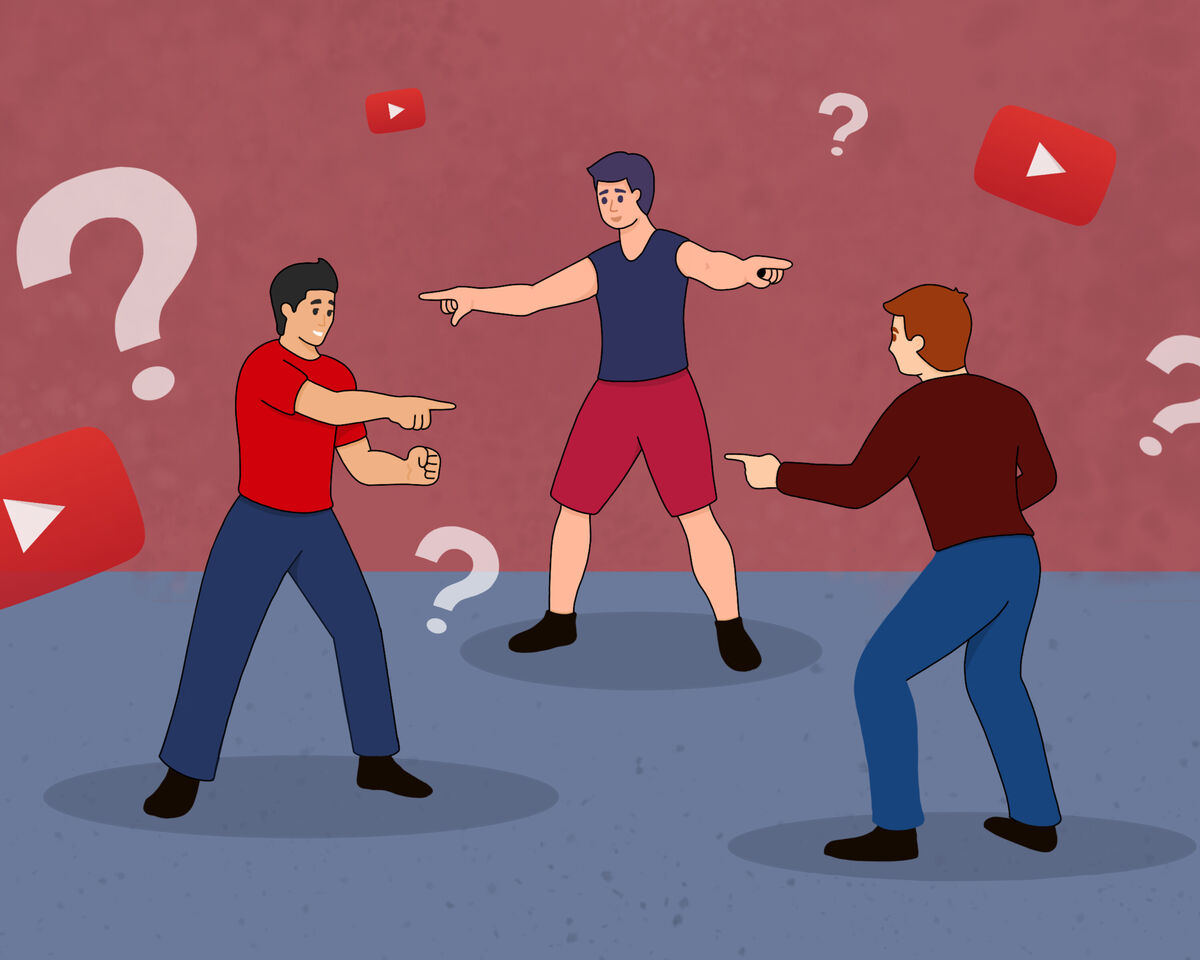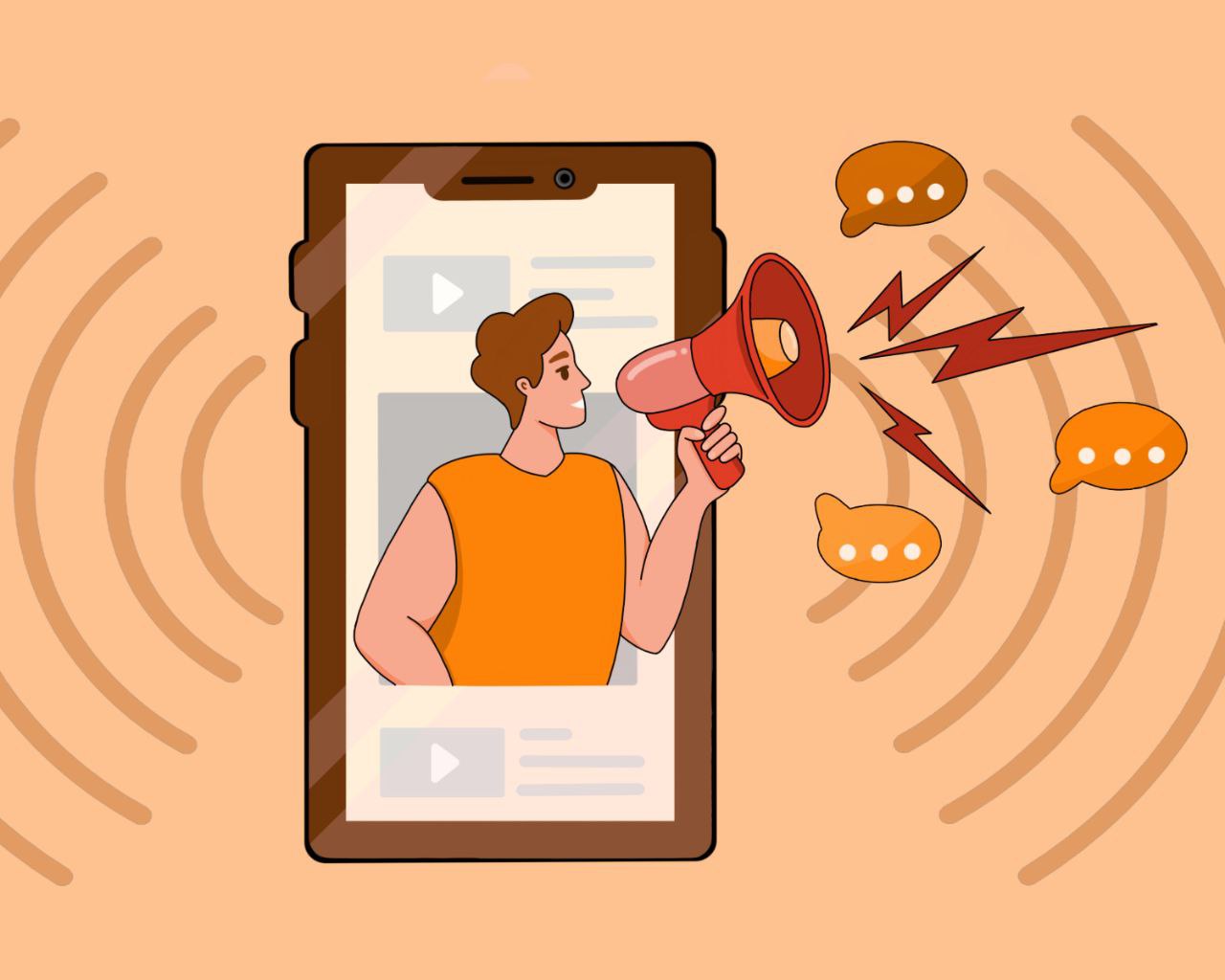Common YouTube Pitfalls for Beginners

Many new YouTubers unwittingly fall into numerous traps on YouTube. These missteps often lead to disappointing results such as declining views, audience disengagement, and a lack of activity, leaving creators feeling discouraged.
Even if you think you're doing everything right to grow your channel, it might be worth checking to ensure you're not making some common beginner mistakes. Let’s dive in and uncover these pitfalls!
"I'll talk about anything I want on my channel, and people will love me for being myself."
There is truth in the idea that we shouldn’t try to be someone we’re not. Our personality should be the foundation for all our content.
However, that’s not the same as trying to create videos on a channel about everything at once. Mixing different topics on a single channel has always been, and remains, one of the biggest and most common traps for many creators.
You’re all undoubtedly talented and amazing, with many diverse interests. But if you want your channel to feature both cooking different dishes and playing video games, it will be challenging for your viewers to find the motivation to watch this mismatch of content.
Before your audience gets to know what an interesting person you are, they first need to decide that they even want to get to know you. And for that to happen, they must initially be attracted to your channel’s theme and the type of content you upload.
There’s a great phrase about mixing topics on one channel:”Don’t upload videos your subscribers didn’t sign up for.”
The trap here is that even if a couple of random videos go viral and bring in some subscribers, those viewers will only subscribe for the topics that drew them in initially.
This means they won’t watch your new videos on other topics—they’ll just wait for you to upload more content on what they originally came for.
This can start a downward spiral: viewers don’t watch new videos, YouTube interprets this as a lack of engagement on your channel, and your videos get fewer and fewer impressions until you’re left with an irrelevant subscriber count and no views.
That’s why we recommend taking it slow. Don’t immediately overwhelm your audience with all your interests. Start by focusing on your most important passion and try running your channel in a fun and engaging way around that theme. Once you’ve established that, you’ll figure out whether you want to branch out or if this topic is enough for both you and your audience.
If some creator does it, then I can too
This belief hides many issues, depending on what exactly we’re talking about.
Let’s take a look at the most common assumptions behind the idea that if someone does something a certain way, it means everyone else can do it too.
- Using other people's materials in your videos
Very often, we see creators who don’t understand—and may even become angry about—YouTube’s policies on using other people’s music and videos. They ask, “Why do we need copyright? I want to use someone else’s music. Why am I receiving Content ID claims?”
Let’s consider a different perspective: imagine you’ve created a video into which you’ve poured significant time, effort, and creativity. Your work is excellent and earns a gratifying amount of attention from viewers.
Suddenly, a random person takes your video, modifies it slightly, and posts it on their own channel, attracting even more views than you did. You never intended to share your work in this way, and this individual didn’t ask for permission or even credit you as the original creator.
Wouldn’t you agree that this situation would feel rather unfair?
This is precisely why every country’s legislation includes a dedicated section known as copyright law.
YouTube did not invent copyright, and it only controls it based on the legislation of the country in which it operates.
In addition, YouTube's rules regarding copyright are based on US legislation, and the Content ID system exists to automatically track improper use of content without the permission of its rights holder.
Therefore, it is pointless to complain if you took someone else's materials without asking permission and received a copyright infringement complaint from YouTube. Consider yourself lucky it was not a court summons.
The trap here is that popular creators may violate copyrights, and many beginning creators think that if their videos and channels are not deleted for this, then it means it can be done. Or that major creators have some privileges for using other people's content.
There are no special privileges for content creators on YouTube. They either negotiate with rights holders to use their works, or buy licenses for certain materials, or live with violations. That's all, there are no other options.
- Inconsistent work on the channel and content
Why should I bother so much with the design of my channel if another creator has millions of subscribers and tons of views, and his channel doesn't look any better than mine?
If you do not already have millions of subscribers and views then you can not operate like those who do.
If we're talking about the privileges of major creators, they often lie in the fact that the audience of million-subscriber channels loves the content they provide so much that viewers basically don't care how the channel and videos are designed.
But beginning creators have nothing yet except their own ideas, creativity, and platform tools. However, they do have huge competition among other YouTubers, including those very millionaire channels.
So don't rely on them in matters of channel and video attractiveness. In the race for views and popularity, million-subscriber channels have already won because they have a base of loyal viewers. And you haven't yet built that base to boost your videos, despite the design.
The same applies to the frequency of video releases: some creators upload three videos a year, whenever and however. And gains tens of millions of views. Why do I need any schedule, content plan, and regularity?
Well, first, such creators on YouTube have usually been working for about ten years. And during these ten years, they weren't sitting idle: they developed themselves, improved the quality of their content, and built a loyal audience. And yes, now they can afford to choose the topics that personally interest them and make videos on these topics as much as they need.
And only when your viewers love you and your content so much that they are ready to wait for it for months, then we'll say: "Sure, do whatever you want."
Although we always say that you can do what you want, but be prepared for the consequences.
So the trap is that beginning creators analyze million-subscriber creators in general, not considering the details and the fact that they and popular creators are at completely different stages of the YouTube career ladder. And beginning creators will have to try hard to climb this ladder.
Youtube is EASY!
The trap of unrealistic expectations has hit many beginning creators.
Unrealistic expectations include a huge number of small beliefs that will push you deeper and deeper into a trap.
- If you post videos every day, YouTube will start promoting you faster
If your videos are not interesting to the audience, then even if you upload them every minute, this will not help in promotion. If the choice is between the quality of videos and their quantity, we would recommend choosing quality.
- YouTube algorithms work randomly
As data shows, most creators work randomly, but YouTube’s algorithm is programmed to work according to its parameters.
Let us remind you the scary truth about algorithms: they work not to promote creators, but to delight viewers with great content.
If the audience does not watch your videos and does not consider them content that brings them joy, then the algorithms are not to blame.
Want to hack the algorithms? Try to understand what your viewers like and start making content for them, not for algorithmic promotion.
YouTube's recommendation algorithms are fundamentally designed to serve viewers' interests, not to help creators gain visibility. The key point is to focus on creating content that genuinely engages and entertains your audience, rather than trying to manipulate the platform's algorithms.
- I will spend all my time and energy on YouTube, and then I will be successful
Unsurprisingly, this logic also leads nowhere. Because there is a big difference between working a lot and working effectively.
When you spend weeks creating and developing one video, you will eventually face a situation where the balance of effort invested and audience response can be completely disproportionate.
If this motivates you to spend even more time and effort creating a new video that will again bring you only three views, then sooner or later you will burn out and become disappointed.
Time and effort are much easier to manage effectively when you incorporate proper planning. By sitting down just once to evaluate how much time you’re spending and where it’s going, you’ll find it far easier to work efficiently on YouTube, rather than simply working more.
It is important to be efficient rather than simply working hard. Focus on strategic planning and time management in content creation. This will allow you to prevent burnout and improve productivity on YouTube.
- Now I'll learn everything about YouTube and content creation and then I'll start running a channel.
Certainly, you need some knowledge base to start managing a channel. But no matter how much useful material we study, nothing will work without practice.
The most effective learning will happen for you in the process of working on the channel. No theories or hypothetical tactics for audience building will help you in reality if you simply do not try working on YouTube yourself.
It is much easier to look for useful tools in the process of working on the channel. You will make mistakes, and that's good. You will have questions, and then it is very useful to turn to experts who have long found answers to all these questions because they have been dealing with YouTube for years.
In summary, it’s important to gain hands-on experience in content creation. Practical learning through actual work is far more valuable than theoretical knowledge, and making mistakes is a crucial part of the learning process.
I make videos primarily for myself
If you adhere only to personal motivation, then you shouldn't expect other people to watch your videos. You're making them for yourself.
In general, we believe this is the most dangerous trap for creators who want to become popular on YouTube.
Such an egotistical position deprives you of the ability to look at your own activities objectively. It takes away the motivation to work on content, study the audience and their pain points. Without this, no channel will grow.
Your videos are unlikely to gain views if they do not address some needs of the viewers.
If you do not create attractive design, citing that you're doing it all for yourself, you won't even earn clicks on your videos.
Why would viewers choose bad videos when thousands of creators are working on content and offering something interesting specifically to them, rather than just shooting something for themselves?
Creators of successful channels run them because they like what they do, they like the chosen topic, they enjoy shooting videos and sharing their thoughts with the audience.
But there is a major difference between "I'm doing this only for myself" and "I'm doing what I like".
As a separate mini-trap, we want to highlight the topic of creating a community on your channel.
And we're not talking about a YouTube tab, but about a community of like-minded people who will drive your content forward.
For some reason, beginning creators think a lot about earnings, algorithms, and how to gain some number of subscribers and views, but much less often ask what will unite the audience in their content.
Creating a community of like-minded people, properly building communications with subscribers, will be the boost for promoting your videos without any cheating or algorithm hacking.
In summary it’s important to create content with the audience in mind, rather than solely for personal satisfaction. You need to understand and address viewer needs, create engaging content, and build a community around your channel.
I don't need scripts for my videos
For creators, the most valuable thing a viewer can give them is their view. And the time a person is willing to spend on our creativity must be valued.
Wasting viewers’ time with lengthy greetings, dull intros, and constant calls to subscribe across every social network doesn’t motivate them to watch your video—or to ever return to your channel.
Your goal for creating on YouTube in 2025 should be to learn how to make content that viewers will be willing to return to again and again.
You won't have to constantly ask them to subscribe if you make great videos. If you want to motivate your audience to do something, offer them another interesting and cool video on the topic.
At the moment, this works much more effectively and quickly leads creators to the coveted goal of becoming popular on YouTube.
In addition, make sure you have a script and put some thought into your video structure. This will ensure that you don't jump from random thought to thought during the video and don't waste viewers' time.
Keep in mind that we are talking about video introductions and endings, where we often lose 99% of the audience, because after getting everything useful from your video, the viewer does not listen to kilometer-long goodbyes. They don't have time for that.
A script will allow you to work more efficiently. It will also help guide interesting visual or plot solutions, and allow you to come up with jokes and gags. All this is almost impossible to do during recording, because for quality improvisation, you need to be able to improvise competently. To be that good at improvising can take years of practice so stick with a script.
And the last argument in favor of working on a video with a script or structure is that you will reduce your time during filming and video editing.
It may seem that we are sharing ordinary advice, but a huge number of creators don't even think about how these topics can hinder their development on YouTube.
Misunderstanding the topics we covered can inhibit a channel's growth. It can deprive a creator of the opportunity to progress, develop, and become more popular. We hope that those of you who read through to the end will now be much less likely to stumble into YouTube’s traps.




